#yuan hong icons
Text
Yu Sheng (鱼生) or Yusang in Cantonese, meaning “raw fish” in Chinese, is a salad dish comprising thinly slicesd raw fish and various seasonings that are mixed together as diners toss the ingredients. It is a dish usually eaten during Chinese New Year. Traditionally a simple dish with few ingredients, the yusheng recipe has evolved over the decades and now comprises a wide variety of ingredients. Our second yusheng for this Lunar New Year is a small serving of Grand Fortune Abalone Yusheng (S$49.90++) from White Restaurant. In line with the coming Year of The Rabbit, this yusheng comes with an auspicious rabbit ornament.
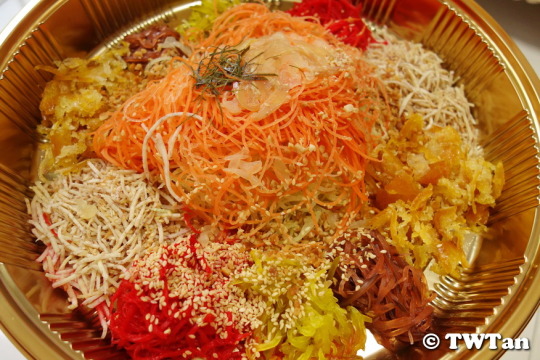

Today, the common form of yusheng is the 七彩鱼生 (Seven-coloured Raw Fish salad) served in local restaurants during the Chinese New Year period. Also referred to as 发财鱼生 (Prosperity Raw Fish Salad) or 新年鱼生 (Chinese New Year Raw Fish Salad), this colourful take on yusheng was said to be created in the 1960s by chefs Lau Yoke Pui, Tham Yui Kai, Sin Leong and Hooi Kok Wai, together known as the “Four Heavenly Kings” in the Singapore restaurant scene.
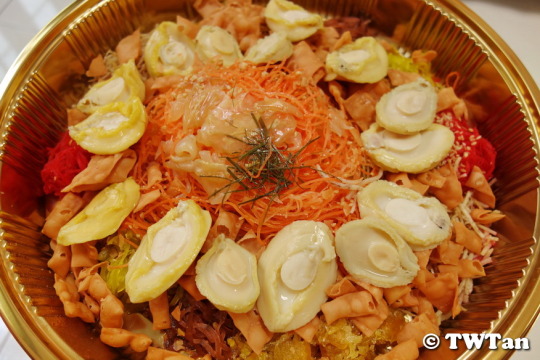

The ritual of eating yusheng during Chinese New Year involves all the people at the table tossing the salad and uttering auspicious phrases. The dish is deemed auspicious because of the homonymic meanings behind its ingredients, which suggest blessings and good fortune for the new year: 鱼(Yu) is a homonym for “fish” and “abundance”, while 生 (Sheng) means both “raw” and “life”. Together, yusheng implies “abundance of wealth and long life”. In the Cantonese dialect, the dish is known as 捞起 (Lo Hei), where “lo” implies “tossing up good fortune” and 起 (Hei) means “to rise”, again a reference to a prosperous business and thus its popularity with businessmen during the new year celebrations. The ingredients of yusheng vary among restaurants, and one such recipe is presented below along with examples of auspicious phrases that may be uttered as each ingredient is added.
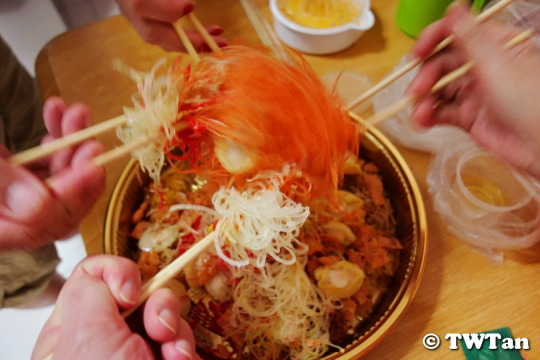
Step 1: All at the table offer auspicious greetings.
Words: 恭喜发财 (Gong Xi Fa Cai - Wishing you wealth and good fortune) or 万事如意 (Wan Shi Ru Yi - May all your wishes be fulfilled).
Step 2: Add fish, which symbolises abundance or excess through the year.
Words: 年年有余 (Nian Nian You Yu)
Step 3: Add pomelo over the fish for luck and auspicious value.
Words: 大吉大利 (Da Ji Da Li)
Then dash pepper over the ingredients for greater prosperity and fortune.
Words: 招财进宝 (Zhao Cai Jin Bao)
Pour oil, circling the ingredients to symbolise the multi-fold increase of profits and to encourage money to flow in from all directions.
Words: 一本万利 (Yi Ben Wan Li) and 财源广进 (Cai Yuan Guang Jin)
Step 4: Add carrots to the fish, indicating blessings of good luck.
Words: 鸿运当头 (Hong Yun Dang Tou)
Then place shredded green radish on the fish, symbolising eternal youth.
Words: 青春常驻 (Qing Chun Chang Zhu)
Next, add shredded white radish for prosperity in business and promotion at work.
Words: 风生水起 (Feng Sheng Shui Qi) and 步步高升 (Bu Bu Gao Sheng)
Step 5: Add condiments. First, sprinkle peanut crumbs on the dish, symbolising a household filled with gold and silver. As an icon of longevity, peanuts also symbolise eternal youth.
Words: 金银满屋 (Jin Yin Man Wu)
Sesame seeds follow, symbolising growth in business.
Words: 生意兴隆 (Sheng Yi Xing Long)
Add deep-fried flour crisps in the shape of golden pillows, with wishes that literally translate to mean that the whole floor would be filled with gold.
Words: 遍地黄金 (Bian Di Huang Jin)
Step 6: All at the table stand up and toss the salad an auspicious seven times with loud shouts of Lo Hei (捞起) and other new year wishes.
Action: Mix ingredients by pushing them towards the centre, which is an encouragement to push on the good luck to all at the table. Some may lift clumps of the salad as high as possible to symbolise the increase in good fortune.
This Yu Sheng (鱼生) only came with five small pieces of abalones so we enhanced it with an additional can of baby abalones. When we are ready to toss, we found out that the restaurant had mistakenly given us two containers of oil instead of one oil and one yuzu sauce. Without the sauce, there is no sweetness, so sis quickly juiced a couple of Mandarin oranges to replace the forgotten sweet sauce. Overall, not a satisfying eat due to the lack of a crucial condiment.
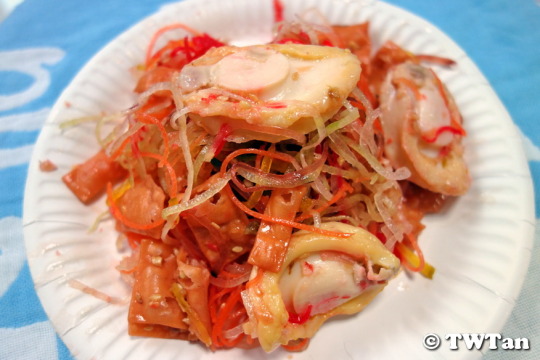
Yu Sheng info from here.
#Yu Sheng#鱼生#Prosperity Toss#捞鱼生#Lo Hei#捞生#White Restaurant#Abalone#Chinese New Year#华人新年#Lunar New Year#农历新年#Vegetables#Salad#Candied Winter Melon#Jellyfish#Yam#Puff Crackers#Carrot#Colourful#Asian#Food#Buffetlicious
22 notes
·
View notes
Text
Thoughts I had during TGCF S1 Ep 1
Note: I have just seen all 12 episodes of Season 1, and I’m watching the entire donghua in English. Now here we go!
-Is that a Jiao? (The red palanquin the servants are carrying the woman in)
-Welp, it sure got gorey fast, and the Jiao has been dropped.
-That Origami Crane has seen better days, and it doesn’t even have eyes!
-Don’t go out there… don’t go out there… don’t go out there… don’t go out there… *Bride gets snatched* Okay, maybe you should’ve gone out there.
-An intense first start to a really interesting Donghua!
-Now I know not to skip the opening song this rewatch~!
-It’s an actual live Crane!
-It’s Laputa from Castle In the Sky (So need to actually finish that movie)
-It’s that town background from Genshin Impact (I literally know nothing about that game, and I’m not interested in playing it)
-It’s that bright light column from Legend of Korra (I haven’t seen the full series and I also don’t plan to watch it, Die Hard Last Airbender fan here)
-That was good animation, and the person running towards that light beam inspired a scene I’m writing my TGCF OCs Hong Hai and Qing Tao are running towards it to see who just ascended.
-Right after XL ascends, Hong Hai and Qing Tao then go, “Huh, Who is that?” Then everybody yells at them, “PRINCE XIE LIAN!”
KOI FISH!
-Why didn’t they have the “Most likely to be cast out of Heaven reward” in my High School Yearbook, heck I could’ve gotten nominated that easy…
-I wasn’t kidding when I said Xie Lian’s English voice was like butter melting on warm fluffy flapjacks!
-Ling Wen is a savage!!! She might the Chinese Equivalent of Athena or Themis.
-He has a fanclub?!?!?! (I might be one of the members)
-The Official’s Okay!!! And a badass!
-So much property damage…
-Yeah it kind of is, (Hehehehehe Last airbender quote)
-They are using Yuan as currency right?
-Not like the Matrix movie right?
-That’s Lucien Dodge
-Who you gonna call? Ghostbusters!
-Really? He got banished over a tea break?!
-Woah they’re all just harsh on his return to heaven
-Those translucent viewing cloths…
-Is ‘mana’ how they say ‘qi’ in the Dub?
-Magic Sleeves of Holding! count: 1
-Aw he thanked her!
-He said his famous line people “And may all taboos be shattered…”
-It’s the Jasmine Dragon Tea shop from The Last Airbender
-And ‘Hear no Evil’ to complete the iconic Monkey Trio!
-Awww it didn’t land on his finger like in Book 1 (Oh yeah, I’m reading the first two books I purchased JSYK)
-She has him on Speed Dial (DCAU Justice League reference)
-I love how they both looked really pissed off at him, yeah XL it’s totally the latter option.
-And then she hangs up on him
-Green tea! (I hope it’s Jasmine)
-Hahahahaha he spat out his tea! XD
-Fu Yao, *Is sarcastic and rolls his eyes* Basically me: He’s just like me fr!
-Oh and they’re staring daggers at each other!
-FIGHT! FIGHT! FIGHT!
-Xie Lian’s such a peacemaker!
-The fact they responded in sync
-That explains the intense cold opening
-That mission briefing took the whole afternoon?
-See what did I say? Ghostbusters!
-Those people in the wedding procession do not look professional at all
-Hey I’m half Asian with freckles, and I think I look awesome so I’m taking full offense at your insult!
-I think it’s an unwritten rule that Alejandro Saab is typecast as a self serving asshole I’ve seen it in Nomad of Nowhere
-Wow brutal Fu Yao
-Well I honestly hope he dies
-He ripped her skirt, freaking bastard!
-How is he doing that without mana????
-Yeah beat his ass!
-Thanks Nan Feng!
-Yeah you better run
-No! Not the Tea shop!
-Aand he got slapped W H E E Z E!
-An abacus!
-The tea shop got fixed!
-Well Fu Yao ain’t wrong
-Hehehehehehe Dick joke XD
-Fu Yao’s giggle!
-“Go sweep the floors!” “What was that?” OOOOOHHHH!
-Don’t give him Cinderella’s chores Nan Feng!
-OOOHHHHH!
-FIGHT! FIGHT! FIGHT! FIGHT!
-That poor poor altar!
-Not only is it dirty but you’d be disrespecting the god it was offered to SMH
-Wow diplomacy really does solve everything
-He’s got her on Speed Dial too
-The fact that they stared at him together! XD
-Sees Bride!XL: HAHAHAHAHAHAHA I’m Sorry XD!
-Honestly, Fu Yao, VALID.
-She fixed her skirt.
-Yeah right a few alterations, she totally fixed his make up calling it.
-Oh so now you’re smart enough to know Proverbs SMH again
-U said it Fu Yao,
-*Sees Bridesmaids NF and FY like* W H E E E Z E XD XD XD XD
-Is he smiling? I can’t really tell in the animation.
-I can see why this episode literally came out on Halloween
-The Jiao got dropped again!
-So basically ancient Chinese zombies
-So that’s how he was able to last longer than the previous bride
-That Owl again
-There’s that butterfly
-Well there’s his groom (Not the Ghost groom obviously that’s for sure)
-Oooooohhhh! Backstory!
-Pass me the Aux cord! You better not be playing mainstream garbage! *Turns on One Flower and One Sword and vibes like there’s no tomorrow*!
-My favorite song out of the Season 1 soundtrack!
-He’s out of the Jiao and in strong arms!
-Yep that’s totally gonna be important later
-Oh that’s how he was able to confront that bald jerk at the tea shop!
-That battle animation is so freaking fluid! *Chef’s Kiss*
-There go the wolves
-That looks really bad, and it explains his bad reputation in heaven
-Aiaigasa! AIAIGASA people!!!! *Fangirls like there’s no tomorrow!*
-It’s the same umbrella!
-I knew that kid was gonna be important, called it~
-I now pronounce you both husband and husband! You may now kiss the gro- I mean, bride!
-Don’t mind me, just gonna go jam to the rest of the ending!
#episode reaction#my reaction#tian guan ci fu#heaven official's blessing#tgcf#tgcf season 1#Episode commentary#My reaction#episode 1#english dub#Xie Lian#Ling Wen#Nan Yang#Xuan Zhen#Feng Xin#Mu Qing#Nan Feng#Fu Yao#Xianletrio#Hua Cheng#San Lang#hualian#xianle quartet#One flower one sword#Xianle#Tgcf oc#avatar the last airbender#atla#xianle trio
5 notes
·
View notes
Text
Unveiling The World's Most Expensive Auction Items
MN auctions have long been platforms where rarity, historical significance, and unparalleled craftsmanship converge, resulting in jaw-dropping price tags. From art masterpieces to rare collectibles, the world has witnessed some truly extraordinary items commanding astronomical prices.
Here's a glimpse into the realm of the world's most expensive auction items.
Leonardo da Vinci's "Salvator Mundi" (2017): At the heart of the art world, Leonardo da Vinci's "Salvator Mundi" stands as the most expensive painting ever sold at auction. This masterpiece, depicting Christ as the Savior of the World, fetched a staggering $450.3 million at a Christie's auction in 2017. The buyer shrouded in mystery, secured not just a work of art but a piece of history.
Picasso's "Les Femmes d'Alger" (Version 'O') (2015): Another art marvel, Pablo Picasso's vibrant and complex "Les Femmes d'Alger" reached an auction record of $179.4 million at Christie's in 2015. The piece pays homage to the artist's fascination with the harem theme and showcases his mastery of color and form, solidifying its status as one of the most valuable paintings ever sold.
Pink Star Diamond (2017): Diamonds are forever, and the Pink Star Diamond, a stunning 59.60-carat pink gem, holds the record for the most expensive diamond ever sold at auction. In 2017, it fetched an astonishing $71.2 million at a Sotheby's auction in Hong Kong. The diamond's rarity, combined with its exceptional color and clarity, contributed to its record-breaking sale.
Jeff Koons' "Rabbit" (2019): Contemporary art made its mark in the auction world with Jeff Koons' "Rabbit," a stainless-steel sculpture resembling a balloon animal. This iconic piece sold for $91.1 million at Christie's in 2019, setting a record for the highest price ever paid for a work by a living artist. Koons' "Rabbit" symbolizes the intersection of pop culture and high art.
1962 Ferrari 250 GTO (2018): In the realm of rare automobiles, the 1962 Ferrari 250 GTO holds the title as the most expensive car ever sold at auction. Crossing the block at RM Sotheby's in 2018, this pristine racing car commanded a staggering $48.4 million. The Ferrari 250 GTO's combination of performance, history, and limited production (only 36 were built) contributed to its record-breaking price.
Yuan Dynasty Vase (2010): Antique Chinese porcelain is highly coveted among collectors, and a 14th-century Yuan Dynasty vase proved this in 2010. Unearthed from a suburban London home, the vase soared to a remarkable $85.9 million at auction. Its rarity, age, and exquisite craftsmanship captivated bidders, making it one of the world's most expensive ceramic pieces.
Stradivarius Violin (2011): The timeless craftsmanship of Antonio Stradivari, the legendary violin maker, is revered by musicians and collectors alike. In 2011, a Stradivarius violin known as the "Lady Blunt" sold for an astounding $15.9 million at a charity
auction. The instrument's exceptional sound quality, coupled with its pristine condition, contributed to its record-breaking price.
Ming Dynasty "Chicken Cup" (2014): A small porcelain cup, known as the Ming Dynasty "Chicken Cup," became one of the world's most expensive Chinese artworks when it sold for $36.05 million at Sotheby's in 2014. Decorated with a simple yet charming scene of a rooster and hen with their chicks, this delicate cup's rarity and historical significance captivated collectors.
Action Comics #1 (2014): In the world of comic books, few items hold as much significance as Action Comics #1, featuring the debut of Superman. In 2014, a pristine copy of this iconic comic book fetched $3.2 million in an online auction. Its rarity, coupled with the cultural impact of introducing the first superhero, made it an invaluable collector's item.
Graham's George Washington Gold Coin (2013): In 2013, a 1792 gold coin featuring George Washington's image was auctioned for an astounding $1.7 million. This unique coin, known as the George Washington President Gold Eagle, is one of the earliest examples of coinage in the United States and holds immense historical significance.
These record-breaking auction items showcase the diversity of the market, spanning art, jewelry, automobiles, and collectibles. The world's most expensive auction items not only reflect the extraordinary craftsmanship and historical importance of each piece but also highlight the passion and willingness of collectors to invest in the rarest and most iconic artifacts from human history.
0 notes
Text
High quality projects are pouring in, unleashing the momentum of development! Zhaoqing Cluster Area Strives to Achieve Continuous Development Achievements
Investment Zhaoqing 2023-10-09 20:44 Published in Guangdong
picture
Climb high and overlook,
Guangdong Province (Zhaoqing) Large Industrial Agglomeration Zone
On a thousand acres of leveled land in the starting area of municipal management,
The infrastructure equipment is undergoing a rumbling operation,
Large factories rise from the ground during the rise and fall of the sun,
Looking around,
The embryonic form of the transportation network structure in the gathering area is gradually emerging
picture
Photographed by Liang Xiaoming
On September 28th, the Guangdong Province (Zhaoqing) Large Industrial Agglomeration Zone (hereinafter referred to as the "Agglomeration Zone") held a project signing and construction activity in the municipal management starting area. A batch of major high-quality projects settled in the agglomeration zone, adding weight and momentum to the high-quality development of the agglomeration zone.
Behind the vivid scene of industries competing for the first place and project construction being hot, the gathering area actively implements the high-quality development deployment of provinces and cities, adheres to the principle of putting the real economy first and manufacturing industry at the forefront, and focuses on grasping large industries, platforms, projects, enterprises, and environment, solidly grasping the unremitting perseverance of attracting business and investment and project implementation.
Seize the 'bull nose' of attracting investment
Introduce large projects and cultivate large industries
From January to September this year,
A total of 71 projects have been introduced in the urban management starting area of the cluster area,
The total planned investment is 30.31 billion yuan,
The expected output value of the project after reaching its full capacity is 52.66 billion yuan.
For the gathering areas currently in the stage of vigorous development,
This set of data fully reflects
Their efforts in attracting investment and investment.
Fan Bi, Director of the Economic Promotion Bureau of the Management Committee of the Guangdong Guangxi Cooperation Special Experimental Zone (Zhaoqing)
The starting area of municipal management has gone out to attract investment 109 times and visited 232 enterprises. The gathering area has always regarded investment attraction as an important breakthrough in accelerating economic growth and scientific development. Through targeted investment attraction, chain owner investment attraction, and business attraction, it actively introduces large projects and cultivates large industries, focusing on attracting a group of leading, iconic, and "chain owner" type major high-quality projects to settle.
picture
A batch of leading, iconic, and "chain leader" major high-quality projects have settled in Zhaoqing. The construction site was bustling with activity. Photographed by Liu Chunlin
During the day's event,
38 signed projects
Starting 30 projects,
All construction projects are
Manufacturing projects involving equipment manufacturing
Electronic information, new energy vehicles and automotive components
Industries such as metal processing, new materials, food and beverage.
picture
National high-tech enterprise
Shenzhen Qianxing Innovation Technology Co., Ltd
It is one of the enterprises that signed and settled on the day of the event.
Li Jiakai, the relevant person in charge of the company
The intersection of the Xijiang and Beijiang rivers in Zhaoqing has a large water area, making it suitable for the company to carry out underwater operation and testing of products. At the same time, as a node city in the Guangdong Hong Kong Macao Greater Bay Area, Zhaoqing has a good industrial foundation and relatively complete policy support such as talent. The sincere and thoughtful services provided by the gathering area have also given us confidence and confidence to invest and develop in Zhaoqing. Our project plan is to be officially launched by the end of this year and construction will begin in the middle of next year.
It is worth mentioning that,
Among the 71 newly introduced projects in the cluster area,
The proportion of projects that meet the "1+1+2" industry exceeds 87%,
Highlighting key development industries,
Fully explained the starting area
Great potential for future development
The importance and support of industries with strategic significance.
On the other hand,
More than 90% of projects
Originating from the Pearl River Delta region,
This means the advantage of the geographical location of the starting area
And development potential,
All have been recognized and favored by investors from all sides.
picture
In this batch of projects, high-tech enterprises also account for over 60%, "Fan Bi said. This data demonstrates the importance that the agglomeration zone places on innovative enterprises. After the growth and development of these enterprises, they will also become a solid foundation for future technological innovation and industrial upgrading in the agglomeration zone.
Wholeheartedly promote the implementation of the project
Highly praised by enterprises for the 'speed of agglomeration zone'
The development of cluster areas is in full swing,
Going hand in hand with investment promotion work,
It is the speed of project implementation and commencement.
Since the beginning of this year,
71 industrial projects were introduced into the cluster area,
Introduce 1 project in an average of 3.8 days.
This year, 33 land supply projects have been achieved,
On average, one project is supplied with land every 8 days.
picture
We have signed a contract in April, provided land in August, and started construction in September. The work efficiency in the gathering area is very high, and we greatly admire and thank you
picture
Guangzhou Zhengchuang Holding Group Co., Ltd
It is one of the projects that officially started construction in the gathering area on that day.
The first time we arrived at the gathering area for docking and negotiation,
Company Chairman Pan Naiyue
Not only is it convenient for transportation in Zhaoqing
Attracted by the high cost-effectiveness of living costs,
The overall high-quality business environment in Zhaoqing is even more favorable,
And various departments in the gathering area and even in Zhaoqing
The efficient and pragmatic work style deeply captivated me.
picture
According to reports, Zhengchuang Holdings Group is a leading domestic private brand value retailer. This time, the company has invested approximately 1.1 billion yuan in Zhaoqing and plans to build its first modern smart manufacturing comprehensive industrial park in South China and the Greater Bay Area. Zhengchuang Zhaoqing New Retail Smart Manufacturing Comprehensive Industrial Park mainly produces small household appliances such as electric milk pumps and medical sterile wet tissue products.
picture
The rendering of the Zhengchuang Retail Smart Manufacturing Comprehensive Industrial Park project.
Behind the 'speed of agglomeration areas',
Originating from the agglomeration area for project implementation work
Highly valued and fully supported.
Peng Songguang, Director of the Command Office of Zhaoqing Large Industrial Agglomeration Zone, Member of the Party Working Committee and Deputy Director of the Management Committee of the Guangdong Guangxi Cooperation Special Experimental Zone (Zhaoqing)
Combining the high-quality development work of "dual zone integration" in the cluster area, strengthen organizational leadership, comprehensively coordinate and promote project implementation work; Establish 8 dedicated work teams, implement the "one project, one leader, one dedicated team, one ledger, one follow-up" working mechanism, and coordinate and track all aspects of the introduced projects, including registration, land bidding, project approval, and construction. We strive to provide high-quality, efficient, proactive, and enthusiastic services to solve problems for the enterprise. At the same time, we will strengthen the inventory management of the entire process, ensure that project implementation is "targeted and responsive", and implement the "double tolerance and double commitment" mechanism, focusing on reducing project implementation timelines and processes. In this process, we will simultaneously promote the construction of infrastructure in the park, construct the framework of transportation roads in the park, and promote infrastructure construction. We will do everything possible to provide strong guarantees for the rapid landing of industrial projects.
picture
Photographed by Liao Wenyi
Sincere local service
It will also bring sincere feedback from the enterprise.
Pan Naiyue, Chairman of Guangzhou Zhengchuang Holding Group Co., Ltd
Zhengchuang Group will optimize and aggregate the upstream and downstream industries within the Zhengchuang ecosystem within the Zhaoqing Industrial Base, promote the creation of a new retail supply chain industrial cluster that integrates functions such as intelligent manufacturing of new retail products, R&D pilot testing, exhibition display, assembly distribution, and centralized settlement, and contribute to the high-quality development of the cluster area and even Zhaoqing.
Focus on building four major industrial parks
Build a platform to "attract phoenix to roost"
When wutong are planted, the phoenix will come to roost. While comprehensively recruiting large and excellent businesses, and comprehensively promoting the rapid implementation and construction of projects, the cluster area will also focus on building four industrial parks, further consolidating the foundation of the cluster area's "nesting and attracting talents".
It is reported that the four industrial parks mentioned above are Shenzhen Electronic Information (Zhaoqing) Industrial Park, Shenzhen Advanced Technology (Zhaoqing) Industrial Park, GAC Automotive Parts Advanced Materials Industrial Park, and Energy Storage Industrial Park. At present, the detailed regulatory planning for these four industrial parks has been completed.
picture
On September 28th, the signing and commencement ceremony for the large-scale industrial cluster project in Zhaoqing was held. Photographed by Liang Xiaoming.
picture
On the day of the event, Shenzhen Electronic Information (Zhaoqing) Industrial Park, Shenzhen Advanced Technology (Zhaoqing) Industrial Park, and Zhaoqing Electronic Information Industry Development Research Institute were established. In the future, the cluster area will fully leverage the role of the industrial park as a bridge and platform. Based on the demand positioning of the industrial park, it will attract more upstream and downstream industries to settle in the cluster area by introducing leading enterprises and high-quality projects of the "chain owner" type, and continue to inject "fresh water" into the growth and development of the cluster area.
picture
Finally, let's use a video to,
Learn about the achievements of Zhaoqing Large Industrial Agglomeration Zone!
0 notes
Text
How Shanghai's White Rabbit candy became a global brand
How Shanghai's White Rabbit candy became a global brand
When ice cream maker Adrienne Borlongan first experimented with a White Rabbit flavour, she thought it tasted like "cheap vanilla".To get more news about chinese candy, you can visit shine news official website.
A few weeks after adding it to the rotating menu at her Los Angeles shop, Wanderlust Creamery, customers were about as bored with it as she was.
But when Borlongan posted a photo of an ice cream cone wrapped in White Rabbit-branded paper, word quickly spread on social media. The candy, first produced in Shanghai in the 1940s, is known for its iconic red, white and blue packaging and is loved by children across China. And as Chinese people began to emigrate around the world, their love for the white, creamy confection went with them.
Soon after Borlongan posted the photo, people from all over California were driving to Wanderlust. And that's when she realised she had a phenomenon on her hands.
Since then, White Rabbit has been a mainstay of Wanderlust's ice cream range and regularly sells out of the web shop.
But the story of a best-selling ice cream is about much more than taste - it's about the Chinese diaspora, the power of nostalgia and adorable, eye-catching branding.
Made in China
White Rabbit's origins go back to a now-defunct company called the ABC Company, founded in Shanghai in 1943. It was later sold to the state-owned Guan Sheng Yuan Food Group, which still owns it today.
Originally, the sweets had a picture of Mickey Mouse on their wrappers - perfect for appealing to children. But as Chinese national pride grew and it became less fashionable to use Western images, the company rebranded and put a cartoon rabbit on the box instead.
The mix of colourful, easy-to-find packaging and sweet, milky taste proved a winner. Children from Beijing to Hong Kong grew up with the candy, and it also became a national symbol of the country - most famously, US President Richard Nixon was given some when he made his historic visit to China in 1972.
White Rabbit succeeded as a symbol of China that had nothing to do with politics or controversy - a form of culinary diplomacy.
As for the taste? The creamy texture comes from real milk, and there's an edible piece of rice paper between the candy and the wrapper to prevent it from melting.
Over the years, White Rabbit has tried other flavours, including red bean and peanut. But it's the original version that has the most nostalgia.
CNN contacted Guan Sheng Yuan, but the company declined to comment on its product.
However, the popularity of the candy is evident in the market's enthusiastic response to all things White Rabbit.
The White Rabbit brand has gained a loyal following among the newer generation, who have gone beyond its various flavoured sweets.
When it partnered with a local beauty brand to sell White Rabbit-inspired lip balms online in 2018, the first batch of 920 products sold out in half a minute. A further 10,000 sets of lip balms sold out in three hours when sales opened the next day.
0 notes
Text
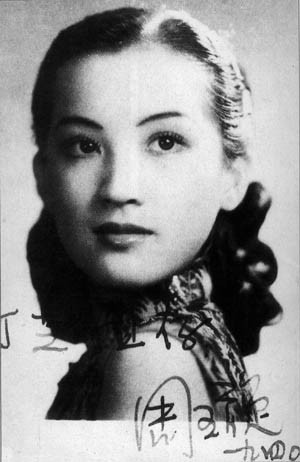

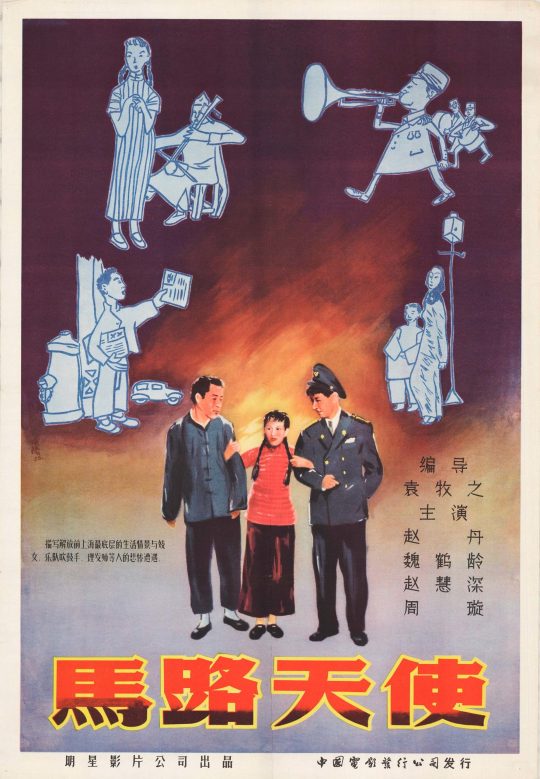
youtube
From Wikipedia: At the age of 13, she took Zhou Xuan as her stage name, 'Xuan' (璇) meaning beautiful jade in Chinese. Zhou began acting as a member of Li Jinhui's Bright Moon Song and Dance Troupe. When she was 12, she won second prize in a singing contest in Shanghai and was given the nickname "Golden Voice" (金嗓子) for her effortless high-pitched melodies.[1]
Zhou began her film career in 1935, and she achieved stardom in 1937 when director Yuan Muzhi cast her as one of the leads as a singing girl in Street Angel. Zhou rapidly became the most famous and marketable popular singer in the gramophone era up to her death, singing many famous tunes from her own movies.
Between 1946 and 1950, she often went to Hong Kong to make films such as "All-Consuming Love" (長相思), "Hua wai liu ying" (花外流鶯), Sorrows of the Forbidden City, and "Rainbow Song" (彩虹曲). After introducing "Shanghai Nights" (夜上海) in 1949, Zhou returned to Shanghai. She spent the next few years in and out of mental institutions owing to frequent breakdowns. Through the years, Zhou led a complicated and unhappy life marked by her failed marriages, illegitimate children, and suicide attempts. Zhou's first husband was the composer Yan Hua (嚴華, 1912–1992), who wrote and sometimes also performed songs with her.
Street Angel (馬路天使), also known as Street Angels,[1] is a 1937 left-wing Chinese film directed by Yuan Muzhi (袁牧之) and released by Mingxing Film Company. Starring popular Chinese actor Zhao Dan (赵丹) and iconic Chinese singer Zhou Xuan (周璇), the story is set in the slums of Shanghai, chronicling the lives of a band of downtrodden underclass outcasts: a tea house singer, a trumpet player, a newspaper hawker, and a prostitute. By blending elements of romance, comedy and melodrama into the storyline, the characters find themselves in a variety of difficult situations as they try to navigate the hardships of the city during the 1930s. Released towards the end of the golden age of Shanghai cinema, the film is regarded as a masterpiece of the Chinese left-wing movement.[2] Taking place during a time of national tension within the country, issues such as economic policy and military conflict are explored to raise awareness about some of China's most pressing concerns.[3] Additionally, the depiction of an impoverished neighborhood in the midst of a contemporary city is a compelling examination of how modernization had affected China during this era. This fusion between the two also provides a commentary on the combined effects that modernization and colonialism had on Shanghai specifically.
0 notes
Text
Why Faye Wong deserves the 'diva' title and 9 other facts you should know about her (2022)
There is an enigmatic draw to Faye Wong. The celebrated Chinese singer-actress is fiercely private but whenever the slightest news of her comes to light, it never fails to make headlines.
Indeed, this proves the enduring pull of Faye Wong, who has been slaying in the Hong Kong and Chinese entertainment industry since her debut over 30 years ago. Ahead, we attempt to demystify, if even just slightly, who Faye Wong is and why she deserves the “diva” title.
She has sold millions of albums
With a career spanning over 30 years, it isn’t an overstatement to say that Faye Wong is one of the most celebrated artists in the Mando- and Cantopop realm. In fact, she held the Gunness World Record title as the “best-selling Canto-pop female” singer in 2000 and with cumulative album sales in the millions.
She's a celebrated actress too
Faye Wong has also crossed over successfully to the acting realm, with multiple credits in both television and film. Her most iconic roles are definitely Wong Kar-wai’s Chungking Express (1994), where she won the Best Actress at the Stockholm Film Festival and was nominated for the same title at the Hong Kong Film Awards and Golden Horse Awards, and 2046 (2004).
She has achieved "diva" status
With her overwhelming success, labelling Faye Wong a “diva” is rather apt. She was also the first Chinese singer to front Time magazine on October 14, 1996, with the headline naming her as one of “The Divas of Pop”.
She went by a different name
We know her as Faye Wong now, but at the start of her career, Faye Wong went by Shirley Wong Jing Man. In fact, Shirley Wong would eventually become the name of her debut album in 1989.
The decision for the name change was said to make it sound more “sophisticated” to help the Beijing-native break into the Hong Kong market, a place where she had to eventually learn to native tongue Cantonese. The name Faye Wong would come into existence from her 1992 album Coming Home.
Her fame didn't wane after her hiatus
Going on hiatus could mean damage to a celeb’s popularity. For Faye Wong, however, her return after a break between 2005 and 2009 only cemented her popularity.
Her comeback was marked by her rendition of Li Jian’s Legend at the CCTV New Year’s Gala and the performance was reported to be watched by over 700 million viewers. Her comeback concerts also resulted in nearly 200 million yuan of ticket sales in China being snapped up in 10 days, while ticket sales channels in Taiwan and Hong Kong crashed due to overwhelming demand.
Faye Wong’s return to television through the Chinese reality TV program PantaCity in 2018 also clocked 160 million views with its first episode, where she performed her song Dream Lover.
She has had multiple high-profile relationships
When you think of Faye Wong, you’ll likely think of Nicholas Tse. After all, the two have been romantically linked since they got back together in 2014.
Prior to Tse, Faye Wong was married to Beijing rocker Dou Wei from the band Black Panther and they had a daughter named Leah Dou Jingtong. Faye Wong later married Chinese actor Li Yapeng and had a daughter Li Yan. The two finalised their divorce in 2013.
Her Weibo was uncovered by fans
Nothing escapes the prying eyes of Internet sleuths, not even Faye Wong’s private Weibo account. Named “veggigeg“, the unverified social media account has multiple selfies of Faye Wong herself and follows various people she works with professionally.
True to Faye Wong’s penchant for privacy, she perhaps left the account with the last update being in 2015.
She's one of the richest Hong Kong female singers
With an estimated net worth of US$150 million by Celebrity Net Worth, SCMP listed Faye Wong as one of the wealthiest Hong Kong female singers.
Besides earnings from the entertainment industry, Faye Wong is also reported to own several properties in Beijing and Hong Kong – a villa at Beijing’s Green Park is said to be worth more than US$7.6 million in 2020.
She's vegetarian
In fact, Faye Wong’s vegetarianism is so well-known that PETA (People for the Ethical Treatment of Animals) had named her the sexiest female vegetarian in the Asia-Pacific region.
She's known for her fashion
With a cool and effortless ease, Faye Wong is nothing short of a style icon in her own right. Just take a look at these photos of the star in the ’90s and tell us she isn’t deserving of the label.
——————————————————————
SOURCE: HER WORLD
0 notes
Text
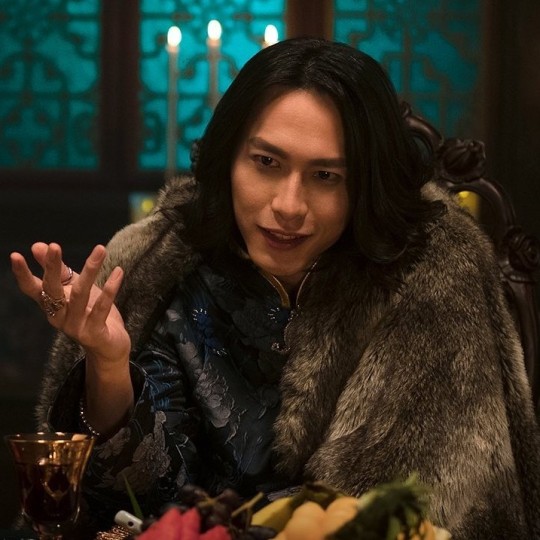

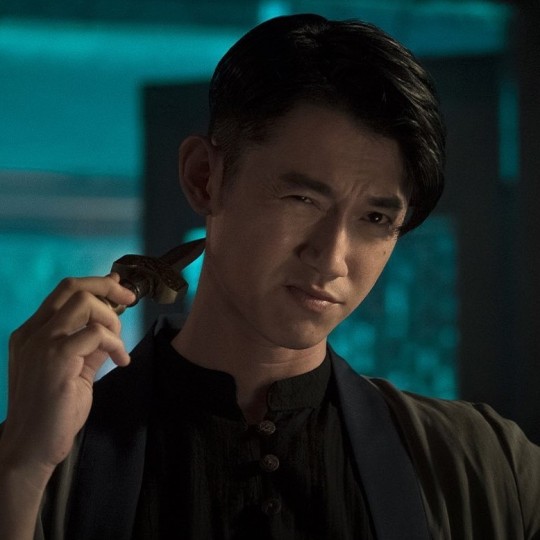

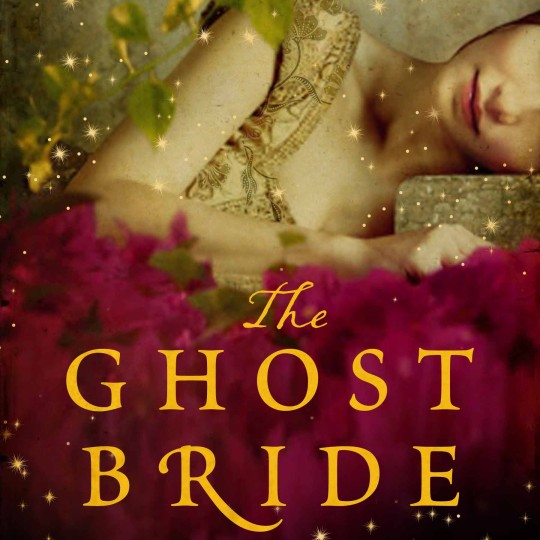

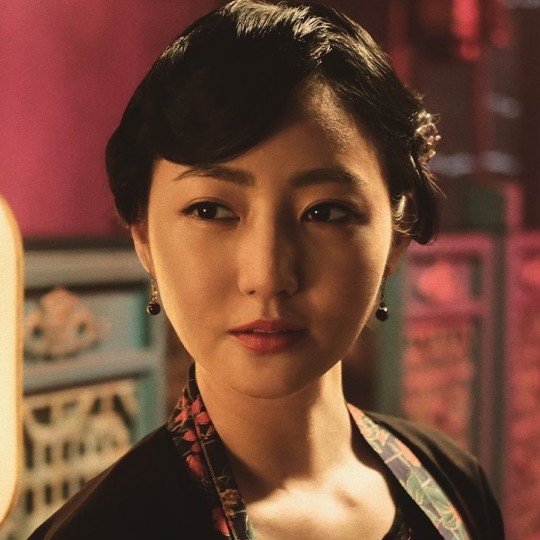
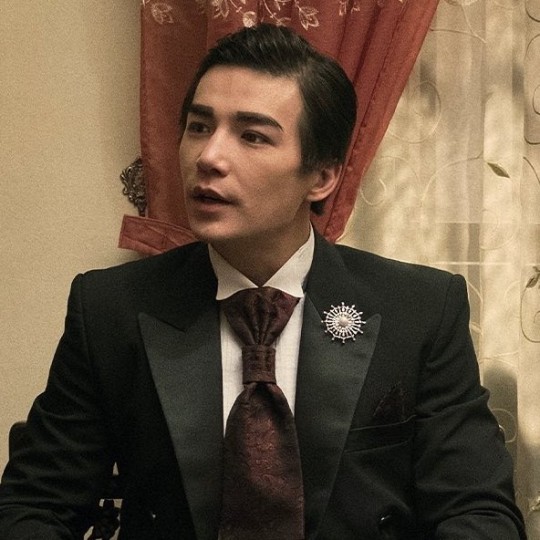

[ the ghost bride icons ] reblog, like or tag @ coupsmi if u save/use 🍒。・゚♡゚・。🍓。・゚♡゚・。
•
personally, this is my favorite work. inspired by author yangsze choo's bestseller, 'the ghost bride' will be aired December 23 on Netflix. please give a lot of support to this series!
#the ghost bride icons#tgb icons#a noiva fantasma icons#li lan icons#pei jia icons#pan li lan icons#lim tian ching icons#tian ching icons#kuang tian icons#er lang icons#wu kang jen icons#wu kang ren icons#yuan hong icons#lim yuan hong icons#tian bai icons#lim tian bai icons#lud lin icons
33 notes
·
View notes
Text
I was looking up the cast for Goodbye My Princess and it turns out Gallen Lo, the actor who plays Chen Xingxu’s father, also played Yang Kang from Legend of the Condor Heroes back in the day. That led me down a hole of looking up who else has portrayed Yang Kang other than Gallen Lo, Chen Xingxu, and Yuan Hong, since LOCH is a super popular/iconic story that has been adapted countless times.
Turns out, Michael Miu also portrayed Yang Kang in the TVB version from the 80s. That version came out before my time but I do remember a time in my teens when I had a highly inappropriate phase where I was obsessed with Michael Miu around the early 2000s when he was at his peak DILF and I was still watching TVB dramas. I mean…
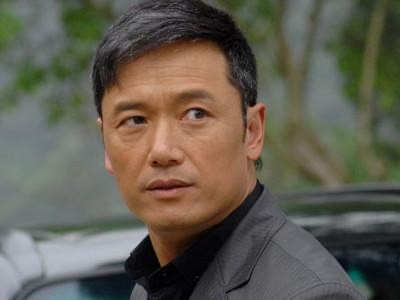
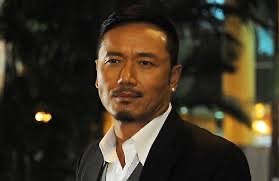
This was way before I became the shameless thirsty fangirl I am today so I was highly confused by this new development. Yes, he was a total Daddy but I think he’s also old enough to be my actual dad.
So that means that I like 4 of the 5 actors who have portrayed Yang Kang in a drama series. I guess there’s just something about an actor who can portray a sorta anti-hero not quite villain, villain character that I’m really into. I have to say, Yuan Hong probably pulls off the look the best. CXX is a hottie but he definitely does not look good with tiny braids ahaha.
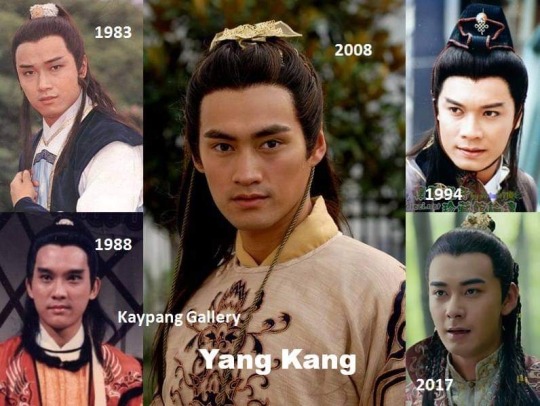
6 notes
·
View notes
Text
Some more Qin Shen Shen moments translations (Part 11/?)
2020 S2 Reunion Edition 2/?

Link to other translations so far.
a. S2E10: After Zhang Xin Zhe and Tai Yi’s performance of “Gun Gun Hong Chen | Rolling Red Ashes” by Sarah Chen:
MC: With two men singing this song, what kind of feeling has this performance brought us? Let’s start by hearing from the ones with the least pressure: Qin Shen Shen.
ZS and LKQ just wordlessly point at each other, each waiting for the other to speak first.

Unsurprisingly, LKQ gives in first.
LKQ, picking up his mic: It’s very good. (ZS laughs) Um...so first of all, it’s a really iconic song. And regarding the brand-new arrangement, I just have to look at Shi Tou next door going *imitates Chang Shi Lei’s waving dance during the song* to know that the arrangement was really, really good. And...of course, Zhe Ge, I have nothing more to say: I - I - I’ve been listening to your songs since I was small. *rubs knees* (ZS burst out laughing)
ZXZ, laughing at LKQ: Don’t use that on me!
ZS (to LKQ): Hey, why steal my line?
LKQ: *starts singing a few lines from one of ZXZ’s song* (to MC) When I go to KTV, I sing his songs. (ZS makes a shocked face) Yeah. *sings some more* Really! Really! So as soon as I heard his voice, I was just...whoaaa...
ZS, nodding: Just right.
LKQ: And Tai Yi is just...First off, the impression he gave me, just through watching a show like “Wo Men De Ge”, is that he doesn’t talk a lot. But as soon as he picked up that instrument, the imposing air came on immediately. *suddenly looks at ZS* Am I right? (ZS: Yeah!) Eh. Talk a little.
ZS: Oh, I just think...because earlier on, Teacher A Zhe very courteously said that we (QSS) are a group coming from legends, but actually, it’s his voice and his person (LKQ: Right) that have consistently existed in the legends I’ve heard. Yeah, because I think it’s the first time I hear Teacher A Zhe’s live. So as soon as he opened his mouth I was just *gasps before singing* I love you~~ *laughs* Instantly, all the images - including from cartoons and dramas I’d watched, cassettes and CDs I listened to - all those memories came back. It’s a uniqueness that cannot be replaced.
ZXZ: Thank you.
ZS: I also want to talk about Tai Yi. *imitates TY’s usual brevity* Very good! *puts down mic* (ZXZ: *laughs*. TY: ....Ok.)
MC, correcting: It should be *imitates TY’s talking style* “The... ...you sang is...”
LKQ pushes ZS’s shoulder.
ZS: Oh, OK! (to MC) Ask me to comment on Tai Yi. (MC complies and asks again) *forcefully articulates each syllable* Rolling Red Ashes is very good.
TY, hesitating: Should...I reply?
ZS, squawking: I’m not listening!!
(...)
When asked to comment on the same performance, WY gives a very wordy and elaborate explanation as to why he always felt sleepy when he listens to ZXZ’s voice, and how it’s because his voice reminds him of the peaceful sounds he listens to before sleeping, like flowing water, and TY’s voice is like sand lifted by the wind etc etc.
LKQ (to ZS): Lo...look at how nicely he’s speaking! (i.e. learn from it!)
ZS, at a loss for words: I...I also miss my bashful days ;;;. *chuckles*
b. S2E10: After Wang Yuan and Chang Shi Lei’s performance of “A Bloody Love Story”. The other artists are asked to comment:
RZE, struggling a little to pronounce the word: I was left “speechless”. (...)
ZS: I have something to say. Just, after listening to teacher Zu Er talk, I think, teacher Keqin... *turns to sing to him* “You Are Not Alone~"
LKQ, a little miffed, cross-legged and staring at him sassily: So you’re saying right now that our Mandarin is very ordinary, aren’t you?
ZS: I am saying that I can just feel that your relationship is very good.
RZE: Did I say “speechless” wrong?
ZS, being a little shit and imitating her, while LKQ continues to stare at him: It’s very correct~~
RZE, being a very good sport: Thank you~~
ZS: Alright, teacher Keqin, you comment first.
LKQ, still extremely sassy: You talk first.
ZS: No, no, because teacher Keqin kept on talking next to me-- (LKQ, sassily to ZS: I’m very angry, you can talk first) *laughs and holds onto his arm* he kept on talking about the arrangement, (to LKQ) I know you have a lot to say.
LKQ, instantly recovered: No, I just felt like I watched a musical. There was everything. And there’s another point I want to talk about, it’s that...perhaps some of the audience don’t know, but every week we have to prepare 3 songs for this show. Last year, when I came to this show, every week I had a really, really bad headache. (ZS instantly giggles like a little shit because LKQ’s intonation on the “ache” was incorrect - “tou2 teng4″ instead of “tou2 tong4″ or “tou2 teng2″ ) Picking songs.... and then thinking about what to do with it...
CSL, whispering to WY: Our heads never really hurt (tou2 teng2), huh? (WY: He said “tou2 teng4″)
LKQ, continuing while ZS is still holding his laughter: It’s just...a lot of hassle, and a lot of struggle (ZS giggles again because he says “zhou1 jie2″ instead of “jiu1 jie2″ for struggle) But when I look at your performance today, there was really everything. And also, you performed really well. (ZS laughs once again because he pronounces “perform” as “biu yan3” instead of “biao3 yan3”) I was watching Shi Tou’s expression when he was singing, and he had acting in it. (ZS, agreeing: He was very much engrossed in it) It wasn’t just carefree singing, he was going *imitates CSL’s dancing and expressions, making ZS laugh* He had acting in it! And I also saw Wang Yuan. Um. I’ve seen you dance when you were in your group. This is the first time I’ve seen you dance alone. I can feel the efforts you’ve put in. Really. (WY: Thank you, teacher Keqin, thank you)
MC: You were just saying that they had everything, but let me correct you. There’s one thing they didn’t have. (ZS: What?) Dry ice.
LKQ: Haaaa!
WY: We did! We did! There was dry ice in the beginning!
ZS, instantly: Do you have to fight over this too? Can’t we even have dry ice???
LKQ (to ZS): Dry ice prince. Come on, talk.
ZS: No, it’s just, first off, “Fei Chang Yuan Man”. I knew they’d be good, because Shi Tou is a very good producer. But what surprised me more is that, based on our earlier chat, it seems that this song was written - uh chosen by Yuan. You chose it, didn’t you?
WY confirms but says CSL is indeed the one who is really good, and explains something about the lyrics that CSL has modified to give it more story.
ZS: He (WY) is just being polite/modest. Actually, he was really good.
CSL: Yeah, well, he has to be polite/modest until the end, right? Otherwise, we’d have been polite/modest for nothing in the first half. *laughs*
c. S2E10: After Rong Zu Er and Xilinnayi Gao’s performance. Xilinnayi Gao says something about how she will look back on the memories of “Wo Men De Ge” fondly and that coming to this show will be a beautiful memory.
ZS: Actually, my feeling is the same. Namely, that it’s “beautiful”. Because, truthfully speaking, everyone’s lives nowadays are very busy, or tiring, or something else...It’s very hard to find a sense of security. But through our show, it’s two generations of singers who, through music, get to know each other, and will start to exchange this feeling of security with each other. Just now, when I turned around, and I found teacher A Zhe and Tai Yi, both quietly listening like this...and then you’d see this group (Chang Shi Lei and Wang Yuan), when I saw them, they were both listening with their eyes closed... You’ll find that they gradually feel more and more secure with regard to each other. I think that’s the charm of “Wo Men De Ge”.
CSL (to ZS): I also congratulate you very much on having found your sense of security. (ZS laughs) Otherwise, you wouldn’t have been able to say those words...
ZS: So earlier on I was looking at that group there on stage and thinking, ohh! How wonderful! Looking over there at you guys and thinking ohh! and then looking over here (at LKQ) and thinking... *clicks tongue* “....what are you doing??”
ZS laughs, while LKQ grabs him by the arm.
ZS, sassily and using the polite form of “you” to LKQ: It’s your turn to speak now.
LKQ: I think..... um....
CSL: ....that being with Zhou Shen brings you no feeling of security? (ZS laughs)
LKQ: Actually, it’s been a very long time since I last saw Zu Er. Last time I saw you, I think it was at your concert last year. I feel like you’ve grown over the last year. When I was doing concerts with her, I felt like I was the big brother, and she the little sister, that kind of feeling. But now, when I see you today with Xilin, there’s a feeling of “ah, I am the elder sister, I have to look after her, I have to...” Whether it’s about the sound, or the looks, everything........it’s like me and Zhou Shen. *leans meaningfully towards ZS while the latter backs away*
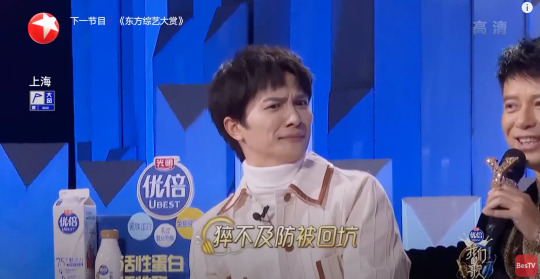
LKQ, protesting at ZS’s denial: Hey!!
ZS, laughing: Alright! It’s about time that I cooperate with you. (LKQ: That’s right!)
LKQ (to RZE again): I feel like you’ve really grown up now.
d. About Qin Shen Shen’s performance of “Fu Shi Shan Xia | Under Mount Fuji”.
LKQ (about ZS): I told him, “ey, actually, that song, I already sang it before (on Masked Singer). What do you think?” (and he replied) “No worries, no worries, we can sing it differently, as a duet”. Ok, ok. So I thought we were going to sing it in Mandarin. But he kept up with the Cantonese.
ZS, standing up to bow to RZE: Teacher Zu Er, later when I sing in Cantonese, please be lenient on me.
e. About Qin Shen Shen’s “Fu Shi Shan Xia | Under Mount Fuji” - post-performance:
XLNYG, immediately after the song ends: They match so well!
MC: Let’s hear everyone’s thoughts fresh out of the pan. As to Yuan, I already read it on his lips when the song ended: “They sing too well!” Right?
WY, confirming: Six words. “Qin Shen Shen are crazy people”. (QSS laughs) They’re too...... *can’t finish the sentence and just does a thumbs up*
MC: Wang Yuan has six words. Let’s see how many Tai Yi has.
TY, counting on his fingers: *decisively* Seven. “I want to go to that place” (Mt Fuji). Because...because... after listening to it, I really found it very romantic. Because I’ve never been there...I...I’ll definitely go there. And when I go there, I’ll put on the version of this song that you sang, and I’ll listen to it on the mountain. Thank you.
Qin Shen Shen, bowing: Thank you, thank you.
LKQ: When you buy your plane tickets, please invite me and I’ll sing it for you there.
ZS, correcting the pronunciation: Plane tickets ( “fei ji piao” instead of “fei ji piu”, but honestly, it’s fairly imperceptible)
MC: Zhe Ge.
ZXZ: What else is there to say about this? *points at QSS* It’s just like the tales from underground, taking place over there.
ZS takes the opportunity to thank ZXZ for helping him, I guess, advertise a song in another show. He sings a few lines of the song at issue, and ZXZ replies with the title: “Wo Shi Zhen De Ai Ni | I really love you”.
MC (to ZXZ): I thought you’d sing a few lines with him.
ZXZ: Huh? No, I already knew there’d be a trap like this. I won’t fall into this kind of trap again!
ZS: No, no, who knows, maybe in the third season of “Wo Men De Ge”, *looks intently at LKQ and stresses the words* I’ll get an opportunity to sing a duet with teacher A Zhe!!
LKQ (to ZS): What do you mean by that?
ZS, holding his arm: No, no, I have no such intention. *bows* Thank you teacher A Zhe.
MC: Xilinnayi, this kind of Cantonese, does it put any pressure on you for your upcoming song?
XLNYG: I was looking at the lyrics earlier on (for ZS), and it only had the characters, no alphabetical letters (pin yin).
MC: So will your screen have alphabetical letters?
XLNYG: Ummm.
ZS: It’s really no big deal (to have pin yin)! Because Cantonese seriously is HARD. (LKQ: Yeah)
XLNYG: Yeah, when you look at the characters only, you wouldn’t be able to guess that it’s pronounced a certain way.
ZS: Yeah, people can’t imagine how hard Cantonese is.
LKQ (to ZS): We get it, Cantonese is hard, you already sang it really well.
ZS, laughing: No, I actually sang it wrong at the beginning just now.
WY: This is already Versailles.
ZS: It’s not...!
ZS helplessly tilts his head to the side and LKQ playfully knocks into his shoulder.
MC, referring to RZE: And here comes another very certified Cantonese teacher.
ZS, probably trying to make up for his jokes earlier: Teacher Zu Er, you’re seriously beautiful. Teacher Zu Er, I really like you.
RZE, smiling: ................Very good! (ZS, laughing: Well-received!) One male singer’s song, and they could make such a seamless collaboration out of it, I find that really awesome. (ZS makes a thanking motion with his hands) And I think the degree to which their two voices match, their reputation is not just baseless rumors.
ZS: Thank you teacher Zu Er. (RZE: Is my mandarin still okay?) It’s GREAT.
LKQ (to RZE): Hey, how come you grew up but your Mandarin became....
RZE: I am working hard.
ZS (to LKQ): Actually, no! I think teacher Zu Er’s.......... Mandarin *looks at LKQ* is.....why am I digging this hole for myself? (LKQ starts to stare at him) *finishes while looking at LKQ*........is better than Keqin’s. *laughs*
#zhou shen#li keqin#qin shen shen#wo men de ge#wmdg2#ngl each time zs jokes about lkq's mandarin im thinking its very borderline but this time#in particular#he s lucky he didnt get smacked#Qin Shen Shen are just chatter boxes#qss trans#wmdg trans
19 notes
·
View notes
Link
Towards the middle of Disney’s live-action remake of Mulan, the shape-shifting witch Xian Lang, played by Gong Li, finally encounters Liu Yifei’s Hua Mulan on the battlefield. Although Mulan is disguised as a man, Xian sees her true identity and tells her: “You will die pretending to be something that you are not.”
There is perhaps a lesson for Disney in these words.
Mulan is supposed to be just another Disney princess in a Chinese outfit – and the desire to be free and independent is seen in all iconic Disney characters, from Jasmine in Aladdin to Elsa in Frozen. But themes of freedom and independence are taboos for a film targeting the vast China market, so if a Chinese dress is to be given to a Disney princess, some tweaks are necessary.
Perhaps understanding this, Disney appears to have decided to infuse as much “Chineseness” into the film as possible to please China, the world’s second-largest film market, and its censors in order to get the film screened.
So what should be added? Mulan must be loyal to the country and be willing to sacrifice her life to protect the emperor; and must live to bring honour to both her family and her country. Such elements aimed at boosting China’s national pride should work like magic, right?
Disney might have thought it had a sure thing by selling as a Chinese story adapted from a Chinese legend with an ensemble Chinese cast. But Disney was – to paraphrase former Chinese president Jiang Zemin’s famous admonition to the Hong Kong press – “too simple, sometimes naive” to think that the big bucks would roll in just like that.
But Disney’s most spectacular failure was its inability to understand the burden of history that weighs on almost every Chinese person’s shoulders when it comes to a watching Chinese story told by the West.
Chinese film-goers are sensitive and not to be offended – they will watch the film with a magnifying glass, focusing on every single detail, from the costumes to action choreography to (more importantly) the historical accuracy and cultural representation. To them, Mulan is not just another Disney princess, but an icon that supposedly represents the best of Chinese values.
This is where Disney lost the Chinese audience it has so desperately tried to win over. An embarrassing score of 4.9 out of 10 recorded on movie review website Douban – the Chinese equivalent of Rotten Tomatoes – would be hard to swallow for the film’s award-winning New Zealand-born director, Niki Caro, and the four Western writers who penned the script.
“Solid proof that Americans cannot tell a Chinese story well,” one user wrote on Douban. Another one said: “Please Americans, do not touch our Chinese culture. You don’t understand a thing. All I can see is deep-rooted arrogance and prejudice.”
Critics quoted in the Global Times – an English-language newspaper under the Chinese Communist Party mouthpiece People’s Daily – went further, blasting historical inaccuracies and misunderstanding of Chinese culture throughout the film. The newspaper called it “a mixture of oriental elements and symbols in the eyes of Westerners” and said Western fairy tales were incompatible with traditional Chinese stories.
This is a disaster made worse by the fact that the Beijing mouthpiece once promised that Liu and Mulan had the full support of the 1.4 billion Chinese people during the heat of the #BoycottMulan movement.
In the four days since the film opened in China on Friday, Mulan has so far brought in just US$23.2 million at the Chinese box office. This puts it on the low end of Disney film debuts in China and below the US$30 million the Christopher Nolan spy thriller Tenet generated the previous weekend. The restrictive reopening of cinemas in China after the coronavirus outbreak likely affected the figures, but the film’s poor reception is unlikely to help Disney rake in the big bucks it dreamed of.
However, not all criticism of the film is built on wounded national ego. Many dedicated fans of the 1998 animated film simply did not like the live-action remake, criticising the change of plot and the removal of beloved characters such as the small dragon Mushu. Many are baffled by the introduction of Xian Lang, although she is arguably the film’s most interesting character as she challenges the world dominated by men.
Surely the film’s epic fighting scenes would find favour in the land of wuxia films? Unfortunately not – the Chinese audience has been spoiled by numerous home-grown, big-budget productions during the past decade. Mulan’s fighting scenes – particularly the wire work – are so bad that some internet users even apologised to Chinese director Zhang Yimou for previously criticising his action fantasy epic The Great Wall.
The new Mulan is a lacklustre feature saturated with bland characters who convey little emotion. Liu’s emotionless performance is unbearable, and the choppy editing and scriptwriting make the film painful to watch. But worst of all is the misunderstanding and misinterpretation of qi throughout the film. Please Hollywood, just stop.
Disney has bent over backwards in the hope of making a splash in China with its “Chinese story”, and the appalling outcome, one that has upset both the West and China, is probably Hollywood’s most arresting plot twist ever.
The studio that has brought so much joy to people across the world has forgotten what it does best. Like Mulan herself, Disney is pretending to be something that it’s not, as it succumbs to an insatiable hunger for Chinese yuan.
Will Hollywood learn any lesson from this fiasco? Probably not, as long as it continues to bow down and beg for cash from the middle kingdom.
20 notes
·
View notes
Text
It's 53% alcohol and tastes like fire. Here's how this liquor brand took over China
New Post has been published on https://appradab.com/its-53-alcohol-and-tastes-like-fire-heres-how-this-liquor-brand-took-over-china/
It's 53% alcohol and tastes like fire. Here's how this liquor brand took over China
At 1,498 yuan, or $209 for a half-liter bottle, it might not sound like the kind of bargain Costco shoppers usually go for — but in this case, it absolutely was. That price represented a steep discount over Moutai sold elsewhere — that is, if you could get your hands on it. The luxury spirit is so beloved in China, it sold out quickly.
“Anytime they have any stock [of the product] available, it’s going to be gone almost instantly,” said Ben Cavender, the Shanghai-based managing director of China Market Research Group. “You’ll see people clamoring [for it].”
Apart from the Chinese diaspora, however, Moutai is still virtually unknown overseas. Almost all — about 97% — of its sales come from China alone, according to its financial reports.
So how is a company that sells its products primarily in just one country now worth more than some longstanding global behemoths? And can Kweichow Moutai, which is described by some Westerners as “drinking liquid razor blades,” succeed in appealing to non-Chinese consumers?
From historic icon to status symbol
Moutai has one unmistakable advantage: the drink is China’s national spirit.
Moutai baijiu — the type of liquor the company makes — is a clear, potent spirit that’s been dubbed “firewater,” thanks to the fact that it’s 53% alcohol. The red-and-white bottles of its flagship product, “Feitian,” or “Flying Fairy,” are a staple at Chinese state banquets and business events.
Known as the favorite tipple of Mao Zedong, founder of Communist China, and as the “drink of diplomacy,” it was famously used to welcome former US President Richard Nixon on his historic trip to China in 1972, and again in 2013 when Chinese President Xi Jinping met with his US counterpart, Barack Obama, in California.
Once, at a state dinner in 1974, US Secretary of State Henry Kissinger told Deng Xiaoping, the future Chinese leader: “I think if we drink enough Moutai, we can solve anything.”
“Then, when I go back to China, we must take steps to increase our production of it,” Deng responded, according to an archived US government transcript.
Being part of so many major public events in China “really set the brand in the national consciousness,” said Cavender, who likened it to another giant beverage maker, Coca-Cola, in that regard.
“That’s the same reason why Coke has actually done so well from a marketing perspective. If you look at the way they’ve done their advertising over the past 50 years, they’re at pretty much every big event. You see Coke at when the Berlin Wall comes down. You see Coke commercials at Christmas. I think Moutai is that brand for China, and so I think that part explains why it’s so popular.”
A Moutai representative declined requests to be interviewed for this story.
Some say the story goes back even further in Communist Party lore. During the Red Army’s “Long March” in China in the 1930s, soldiers used to pour Moutai on their feet to help disinfect wounds, Chinese state media has reported, citing a former army lieutenant general.
Legend has it that members of the Red Army even used to turn to the drink to knock themselves out before surgery, said Hao Hong, head of research at BOCOM International, the securities arm of China’s Bank of Communications.
“It’s a story [that goes around],” he said. “They didn’t have anesthesia. So they had to use Moutai as a drug to numb [people] from surgery.”
Today, the brand is seen more as a luxury status symbol than for its “Red” roots. Some customers buy it not to drink, but to keep as investments. Limited-edition cases are collected and showcased by international auction houses, like Christie’s, which says that some bottles can fetch more than $40,000 each.
Moutai has found a way to be “approachable for a lot of regular consumers, at least for special occasions,” while at the same time also offering collectors’ items that reach the ultra-rich, said Cavender.
“That’s something that makes Moutai, I think, different, from a lot of the international beverage brands,” he said.
It’s also been a tremendous advantage during an economically tough year: wealthy consumers who are spending less on travel may splurge more on liquor, Cavender added.
A meteoric rise
Moutai has long been seen as one of China’s blue-chip stocks. In 2017, it became the world’s biggest liquor maker by market value, surpassing Diageo (DEO), the British owner of Johnnie Walker, Guinness and Tanqueray.
In 2019, Moutai also became the first Chinese company since 2005 to see its share price hit 1,000 yuan (about $145), notching another market record. And last year, it became the most valuable non-tech company in China. (Alibaba and Tencent, the country’s top two tech giants, are valued higher, with their shares listed in New York and Hong Kong respectively.)
In 2020, Moutai’s shares soared 69% to record highs.
Hong said that he believed there was no major impetus for the rally last year; just that “most people are gradually realizing the ability of this company to be able to generate strong cash flow and no debt.”
“It’s like a badge of honor for value investing,” he added. “People love the stock — because year after year, it just continues to deliver.”
Xian Li, a 66-year-old retiree in Shanghai, is one of those people. He’s invested in Moutai since 2004, just three years after it went public.
Li said he was excited to buy in because it was clear from the beginning that the company was “financially healthy,” and able to reward shareholders with a generous dividend.
Since then, he’s invested more than 136,000 yuan (about $21,000) into the stock. The payoff has been huge: a few years ago, he made enough to put his son through university.
“The dividend [alone] each year could cover my daily expenses,” said Li, who plans to hold onto the stock indefinitely. “It’s also going to help me to afford medical bills and nursing home expenses.”
Not everyone is so bullish. Allen Cheng, an equity analyst at Morningstar, made headlines in 2019 when he downgraded his rating on Moutai’s stock to sell.
Cheng, who has since maintained that position, argues that the company’s prospects are overblown, and that “the market has already reflected all the positives of the past 10 years.”
“Being the only hater is really difficult for me,” he said with a laugh. “I think it’s a bubble here.”
Authorities, too, have warned investors of a potential stock bubble. In 2017, Moutai suffered a huge selloff — wiping $7.8 billion off its market cap in one day — after state-run news agency Xinhua, which often conveys the Communist leadership’s sentiment, urged investors to take a more “rational view” of the company.
“It’s important for Kweichow Moutai … to stick to its slow pace,” Xinhua said in an editorial. “Pulling up a plant to make it grow inevitably leads to unbearable pain. Short-sighted speculation will cause tremendous damage to the value of investment.”
The move was not uncommon. Beijing frequently tries to sway investors through state media, such as last summer, when a government-run publication encouraged people to buy into stocks.
That could have a domino effect, particularly because mainland Chinese stock markets are dominated by retail investors. According to a 2020 survey by the China Securities Depository and Clearing Corporation, almost all investors there — 99% — were individuals.
The making of Moutai
One of Moutai’s biggest advantages is its ability to keep the price of its product high. It claims to have limited capacity since it can only produce its drinks in one place.
Similar to champagne — which comes from the eponymous region in France — Kweichow Moutai is named after Maotai, a picturesque small town in the southwestern Chinese province of Guizhou. (The company’s name is based on an old romanization of the town’s Chinese name.) Like champagne, the drink can only be called Moutai if it’s produced in that specific location.
This is where the company says its baijiu — distilled from fermented sorghum and rice — gets the magic touch.
Environmental factors, such as the town’s climate and seasonal changes in the water of the local river, help give the liquor its unique taste and is “beneficial to the production process,” according to the Moutai Museum.
Inside the town, Moutai’s impact on the economy is deeply felt.
As of 2019, Maotai was the richest town in western China, according to disposable income statistics from the municipal government of Renhuai, in Guizhou province. (Guizhou is among the country’s poorest regions.)
That would never have happened if it weren’t for the beverage giant, said Qi Wang, a local resident.
“Kweichow Moutai is the leader of Maotai,” he said, adding that the company’s boom helped encourage him to open his own liquor factory. “It influences all aspects of the town’s development.”
Its close ties with the government don’t always guarantee protection, though.
In 2013, sales slumped when President Xi embarked on an anti-corruption drive, leading the government to stamp out any sign of “extravagance” among officials, including of expensive liquor.
The campaign led to “unprecedented pressure” on the alcohol industry, Moutai noted in an earnings report.
Sales still grew that year, but only around 17%, compared to 44% the previous year. In 2014, that number plunged to about 2%.
The firm has since bounced back — though it now faces other problems. In recent years, it’s been dogged by numerous corruption scandals, which has led to the ouster of several top executives, according to state media.
Other major firms have faced similar pressure. China regularly investigates powerful executives for corruption — while using the findings to send a warning to others. This month, a Chinese court sentenced Lai Xiaomin, the former chief of a top, state-owned financial firm, to death for bribery.
Is China enough?
Moutai has an outsize reliance on the Chinese market.
To be sure, the company has tried to push overseas, notably by starting a “fan club” in the United States, traveling to Africa to woo new business partners and teaming up with foreign players, such as Italy’s Inter Milan soccer club.
But for the most part, it’s had little to show for it. In 2019, almost 97% of sales still came from China.
Last March, the company launched a social media campaign called “stay at home with Moutai,” which encouraged users around the world to try new recipes during lockdown. One Instagram and Twitter post, for instance, suggested mixing the drink into a “sunset cocktail,” while another offered instructions for a noodle dish that could pair with the liquor.
The campaign demonstrated an effort to stay connected with international consumers, even during the pandemic. But analysts have pointed to other challenges ahead.
Moutai needs to do more to diversify, according to Spiros Malandrakis, industry manager of alcoholic drinks at Euromonitor International. “It needs to have started yesterday,” he said. “International spirits always start local, like baijiu, but they become international. That’s the key. That’s how you take over the world. That’s how you become sustainably big.”
Malandrakis pointed to Mexican tequila, Russian vodka and American bourbon as examples. None of those “would have survived” if they didn’t go global, he added.
The process, of course, doesn’t happen overnight.
William Dong, managing director of Evershine Australia, which distributes Moutai in Australia, New Zealand and Italy, said that many people still need to be educated about what baijiu even is.
“We have distributed the product into basically everywhere that we could,” he said in an interview from Sydney.
At the end of the day, most customers are still Chinese, he added. “I would say probably 80%.”
It doesn’t help that the drink is an acquired taste. Some people eschew Moutai’s strong kick, while others label it “firewater.”
“[Some] Westerners find it, and I quote, ‘kind of like drinking liquid razor blades,'” said Malandrakis.
An even bigger threat, however, may be generational and gender gaps within China. Currently, the core demographic for baijiu is 40 to 60-year-old men, according to Malandrakis.
“The next generation of drinkers does not particularly want to do exactly what their father’s generation did,” he explained. “It’s not great for the future, if you don’t start having new people coming in.”
Malandrakis compared it to sherry, which was loved for centuries but later fell out of popularity as it “became synonymous with consumption of older populations.”
Not everyone is so worried. Even with its weak international position, Moutai’s baijiu was the world’s best-selling liquor in 2019, according to Euromonitor.
“The Chinese market is so big, and it’s continuing to become more wealthy,” said Cavender. He also noted a recent swell in local pride, which could draw more domestic consumers in.
For all its challenges, even critics admit the company’s dominance is nowhere near diminishing.
“The brand — and the heritage that the brand has — it’s really impossible to replicate that,” Cavender said. “Somebody can’t set up a new venture tomorrow and do what they can do. It’s not sort of possible to go back in time and get Mao Zedong to be interested in your drink. It’s not possible to sort of be located in the town where they make their products. So I think they have a strong built-in story that allows them to flourish.”
Appradab’s Beijing bureau and Serenitie Wang contributed to this report.
0 notes
Text
Leah Dou, Faye Wong, Dou Wei: They are the most beautiful individuals in music (2016)
Leah Dou’s new album was officially released on April 22. The fresh psychedelic rock style is perfectly fused with her whole temperament: low-key, comfortable, a little cool, but not cold.
The release of the album was also a hot search topic online. But maybe because her music career is still in its early stages, it did not cause a spectacle of Leah Dou being overhyped all over the place for most netizens. Those who like her are low-key about it and repost it in their circle of friends. After all, this music style follows closely between Dou Wei's "Black Dreams" and the music literacy of most Faye Wong fans.
Fans who simply like Leah Dou's music are still "in reserve". After all, she is still a newcomer in the music industry who has just debuted.
Faye Wong's influence?
Leah Dou made her debut and the media and onlookers are all gearing up. Everyone always thinks that you can get Faye Wong related stories from her. Therefore, regardless of whether it is during Taiwan or Hong Kong promotions, after the veteran reporters and hosts ask two or three questions, they will still talk about Faye Wong. The traditional safe topic is generally: "Does Mom have any input about your music?"
The answer is naturally no. According to Faye Wong’s natural character (type O blood loves freedom), she never guided her daughter to listen to any particular type of music. But during her touring years, she often brought Tong Tong by her side. Leah grew up listening to Faye’s songs since she was a child, so even if Faye didn’t provide a playlist for Leah, her preferences are in the same line as Faye's music.
Leah Dou’s pure English album seems to be different from Faye Wong’s music style, but in fact her creations are still influenced. In an interview, she talked about two Faye Wong songs she likes: "Only Loves Strangers" and "The Flower on the Other Shore".
The former was released in 1999 on the album of the same name. While the latter was the fifth song on "Fable" in 2000. Around 2000, Faye Wong's music production quality was quite high and classic songs multiplied. At that time, she had broken up with Dou Wei and fell in love with Nicholas Tse. Her emotional life was spread out in front of the public and became the hot news of the times. It also gave the media and songwriters many stories and pictures to play with. The lyrics of "Only Love Strangers" reveal a deep sense of sadness but not misery. The melody and arrangement are in a psychedelic pop electronic style that was avant-garde and fashionable at the time. This album is a classic. Except for the three lyrics written by Taiwanese manager Sister Kwan and Yuan Wenren, the rest of the lyrics were written by Lin Xi. The whole album focuses on broken love. Faye Wong’s attitude towards these feelings gave Lin Xi a lot of inspiration and creative space. By using music to treat people who are broken in love, Lin Xi had a lot of fun in this album. He made the broken relationship less shameful.
Faye Wong’s love affairs combined with Lin Xi’s words and Zhang Yadong’s psychedelic ambiguity, made this album a classic in the hearts of fans. But in fact, "Fable" from 2000 might be a better reflection of Faye’s music preferences and taste. This was a concept album in which she composed five songs by herself: "Cambrian Era", "New Tenant", "Chanel", "Asura", "The Flower on the Other Shore". In fact, you can hear the influence in Leah’s music today.
Looking back at Faye Wong's music itself, you will find that Leah Dou’s music is quite similar. Faye has many love songs, but this is the "bundle of love" by Lin Xi and other writers, or in other words, the bundling of the market. After all, her era is different from the era in which Leah made her debut. In Leah’s time, Chinese pop music has no commercial power, so her creative space is actually very large. In the 90s and 2000s, as a representative of mainstream singers, Faye Wong didn’t have many opportunities to be herself in music. "Fable" is one piece and "Di-Dar" is another. The rest of her perception and understanding of music and preferences are scattered in various mainstream albums aimed at the commercial market.
Faye Wong is quite smart. After many years, when we look back, we found that she is actually a musician who combined the best of business and art. She had enough talent and expressiveness to do this. When she needed to cater to the demands of the market, she did it with her personal style. The market wanted love songs, so she had Lin Xi help her write the most out-of-the-world love songs. The market wanted melodies, so she sang the most basic pop songs with a distinct flavor.
Old music fans also know that her singing voice did not take shape in one day. Her understanding, expressive ability and excellent musical taste makes her music enduring. By making popular music avant-garde and fashionable, this is the absolute reason why she can stand firm in the Chinese music industry. Psychedelic, rock, pop, rap, the concepts and styling... The music she produced brought too much content to the Chinese pop music industry. Classic lyrics that influenced fans. Concerts that made the music beautiful and visual.
But now that there is no such icon anymore, the music world is really lonely. So we must cherish Leah Dou because even as a newcomer, we are greedy for her potential.
Dou Wei accompanied?
This is what the gossip reported. For Leah Dou’s debut, Faye Wong accompanied the rehearsal and Dou Wei accompanied the recording. If it is indeed true, it is also very pleasant to hear.
The public still has a lot of misunderstandings about this talented family, both good and bad. Aside from their ordinary life, just talk about their connection in music. Dou Wei and Faye Wong are actually very similar to the two poles in the same dimension. They have a certain degree of similarity, such as artistic talent, musical taste, aesthetics, and spirituality. So they were attracted and fell in love with each other, and they also influenced each other musically.
Of course they have many differences too. Different living environments and attitudes towards life, different values, different personalities, so they will eventually part ways. However, their short marriage created the most precious treasures for the music industry. They produced great music and they had great live performances. In the classic Faye Wong concert “Scenic Tour”, when the drum beats and the music sounds, the two rose from the darkness on stage together, which was the most beautiful moment in the world.
The world's supreme illusion of love is not like this: we are together, we like each other, imitate each other, worship each other, we collaborate, and we appear in the most perfect and beautiful way.
Dou Wei also did not give his daughter any so-called detailed guidance. He is a genius. His parenting to her comes in the form of exchanging talents. Needless to say, it is teaching by example. Dou Wei also doesn't need to provide a playlist for his daughter because as she grows older, she will naturally listen to her father's classics whether it was in the Hei Bao era or after flying solo. Of course, the reclusive music road that he eventually went on, only playing instrumentals in the later period, may not be understood by everyone. But she has grown up to an age when she can thoroughly understand the inner peace of her genius father. Ordinary music lovers may only interpret Dou Wei in the three albums of "Black Dream", "Sunny Days", and "Mountain River", but they cannot understand the position he expressed in later periods. If we limit the criteria for success to the commercial scope, it can be said that as a non-commercial musician who has not gained benefits in proportion to fame and respect in the music industry, Dou Wei has suffered from the great changes of the times. Faye Wong was lucky enough to step on the right point each time, while Dou Wei finally chose to withdraw and not participate. Of course, such an independent position is consistent with his music, unique aesthetic, independent thinking, and independent walking outside the circle. This is actually very good, he has not become a grandson and veteran of the times. He still became the only Dou Wei in his own way.
Child
In 1998, Faye Wong's "Sing and Play" album included the song "Child" written for her daughter. Faye Wong is not very good at expressing love face-to-face, but the lyrics are extremely loving. Leah Dou was not obedient and dropped out of school at age 16 but she did not learn bad behavior. She is humble, polite, bright and confident. She did illuminate the darkness of Faye Wong's heart and became her dependence.
Why is the saying "the whole Chinese music industry is waiting for her to grow up" a bit annoying? Because in those years when we grew up, there was always music related to her to accompany us, whether it is the song “Child”, "You're Happy So I’m Happy", or the babblings recorded by Faye Wong in various singles. For music fans who loved Faye Wong, Leah Dou seems to have verified our youth. But now she has grown up and created her own album, her voice is slightly low but also in the shadow of Faye Wong’s voice. Her raised eyebrows and surprised look is exactly like Faye Wong. She is languid with a slightly shy look. She accidentally pulled people into their memories, but you snap out of it in three seconds. She is the most independent individual. She is like Faye Wong but is completely different from Faye Wong. Her thoughts are systemic rather than sentimental and fragmented like Faye Wong. She said that she does not rely on inspiration to write songs. “Inspiration has no continuity. It just comes and goes for a while.” She just loves to write. When inspiration comes, write faster. When there is no inspiration, she is still willing to do it. She likes Radiohead's "Creep", it feels very bare and the music sounds honest. She also likes psychology, philosophy, and language...
She is rational and calm. She is a very independent individual. She came from her parents, but she is very different from them. She is Leah Dou, the most anticipated newcomer in the Chinese music industry in 2016.
------------------------------------------------------------------
SOURCE: TENCENT // TRANSLATED BY: FAYE WONG FUZAO
0 notes
Text
Liquor Sales the only savior of the World Economy?

The World economy is in deep shit, so who's gonna be our Saviour?
Wait, what! Liquor? Really…
The current economic crisis calls to mind the Great Recession of 2008 in terms of widespread damage, while others draw comparisons to the Great Depression of the 1930s. The global “supply shock” set off by the coronavirus outbreak and its impact on supply chains is sending chills to the World Leaders. But apart from that, a larger fear seems to loom- an old-fashioned “demand shock” that emerges when everyone simply stays at home.
How can Alcohol be the savior of the World Economy?
With no work and business operations, no export or import, no tourism, no FASTags or toll collection, and, obviously, no income from stamp duty as it is closed, (and so many, forgive my memory), the world can elegantly make income from only 'Alcohol' with or without tax increases. How?
Facts
Between 2010 and 2017, alcohol consumption in India increased by 38 percent - from 4.3 to 5.9 liters per adult per year.
Over the same timescale, consumption increased slightly in the US (9.3-9.8 liters) and in China (7.1-7.4 liters).
But call it popularity or modernization, the total volume of alcohol consumed globally per year has increased by 70 percent, from 20,999 million liters in 1990 to 35,676 million liters in 2017.
Then-
Before 1990, alcohol was only prominent in the developed countries, with the highest use levels recorded in Europe.
Now-
Alcohol consumption has grown in low and average developed countries, while the total volume of alcohol consumed in developed countries has remained stable.
Surprisingly, this pattern has changed substantially, as in Eastern Europe the consumption has gone down while in several developing countries such as China, India, and Vietnam it has increased.
What's on the cards?
This trend is forecast to continue up to 2030 when Europe is no longer predicted to have the highest level of alcohol use.
Globally, alcohol consumption is set to increase from 5.9 liters pure alcohol a year per adult in 1990 to 7.6 liters in 2030.
Production of Alcohol
In 2018, the beer production in North and South America amounted to about 604.72 million hectoliters. The world's total beer production came to 1.94 billion hectoliters.
In 2019, Anheuser-Busch InBev was the largest beer company in the world, with sales amounting to approximately 54.6 billion U.S. dollars. This American brewing company is responsible for the production, importation, and distribution of many global brands; specifically Budweiser, Stella Artois, Beck's, Corona, Leffe, and Hoegaarden. The company also produces domestic brands such as Bud Light, Busch, Michelob, to name a few.
Consumption of Alcohol
Reports suggest that global alcohol consumption was approximately 271.5 billion liters last year.
Revenue (2020)
Worldwide
US $ 1,587,868 M
India
US $52,575 M
In India, Delhi earns over Rs 5,000 crore from liquor sales every year. Karnataka earned Rs 21,400 crore last year from liquor sales and Kerala set a record at Rs 14,504.67 crore in FY 2018-19, a jump of Rs 1,567.58 crore from 2017-18. It's safe to concur that India loves to drink.
Impact of Liquor Sales on World Economy
During the Covid19 outbreak, Indian states are losing a whopping 700 crore a day, going by industry estimates. Why not, for alcohol is one of the largest revenue generators for the states.
In the nationwide lockdown, the states across the country have collectively lost an estimated revenue of over Rs 27,178 crore.
Fun Fact, after a 2 days restricted trial opening of Alcohol shops in Assam, it was forced to shut it down, result- the state has lost approx. Rs 100 crore in alcohol revenue earnings in the last two weeks.
That's India. Let's see what's going on in other countries-
US
Alcohol sales in the United States jumped 55 percent during the last week ending March 21. Wine at 66 percent. Beer, cider, and other kinds of booze were up 42 percent. Hard alcohol, such as tequila, gin, and premixed cocktails, have seen the highest increase with sales jumping over 75 percent compared to the same period last year.
The increase was staggering for online liquor sales: a 291 percent increase over the same week in 2019.
UK
In New York, liquor stores are considered essential businesses by Gov. Andrew Cuomo and remain open. But even so, national online sales were up 243 percent, far outpacing store sales.
The sales of rum rose by 92.4 percent.
South Africa
Alcohol and tobacco ban costs SA’s collapsing economy an additional R1.7bn.
China
Liquor giant Kweichow Moutai Co.’s sale rose to 16.7% to 13.1 billion yuan, the company said in a filing on Monday. Total revenue rose by 12.8%. others making merry too.
Russia
In the last week of March, vodka sales across Russia’s largest retail chains jumped 31% in year-on-year terms, while whiskey and beer purchases increased 47% and 25% respectively, Nielsen, a market research firm, found.
Australia
The spending at liquor stores in Australia was up 86%, which is 34% more on alcohol than in the same period the previous year.
Such was the situation that the liquor sale had to be limited per customer. Beer, cider, and premixed spirits are limited to two cases, and wine to 12 bottles per customer, while cask wine and bottled spirits are limited to 2 items each.
France
Sales of alcohol overall fell by 16 percent in the first two weeks. Sales of rosé wine lifted by 3.2 percent - probably due to the pleasantly warm weather - and beer by 6.9 percent. But most other types of alcohol sales fell with champagne suffering the worst fall of 52.5 percent. Sales at France's tobacco also rose - by up to 30 percent in some cases.
Germany
Germany waived off tax, which is approx €650 million (£572 million) beer tax, to give the country’s brewers more cash to protect workers’ jobs while beer sales stall during the lockdown.
In the last week of March, German beer sales were down 9.4 percent on the year. Foreign beer sales were down a whopping 58 percent in early April.
Countries that have banned Liquor sales
South Africa
Hong Kong
Nuuk capital of Greenland
Regions in Mexico
Thailand (10 days ban)
India
Why was Alcohol banned?
At times of lockdown during the Covid-19 pandemic, alcohol consumption can exacerbate health vulnerability, risk-taking behaviors, mental health issues, and violence.
So it's for the people as well.
The real problem in today's world is that- We are far more connected with one another than we previously were (call it population explosion or population migration). COVID-19 is winning because it exploits our closeness. In a memetic (one who loves memes) way- people homed, economy red-zoned.
And, There comes a savior, outta plain sight, and woo! guess who it is?

I am unable to fetch the exact numbers of revenue generated by Liquor Sales but the increase in percentage surely suggests that it is working fine for those countries that had allowed its sale during Covid-19 Lockdown. A trick all other countries shall use sooner than later, but yes, with proper guidelines of Social Distancing. Till then stay safe mate, Keep Calm, and wait for the day.
Did I miss anything? Please enlighten me, use the com box. It's free.
Click on any icon you like from the left. Sharing is fun.
Read the full article
0 notes
Text
Chinese Doctor, Silenced After Warning of Outbreak, Dies From Coronavirus

WUHAN, China — A doctor in central China who was among the first to warn about the coronavirus outbreak, only to be silenced by the authorities, died early Friday after himself becoming infected with the virus, the hospital treating him reported. The Wuhan City Central Hospital said the doctor, Li Wenliang, 34, had died at 2:58 a.m. Dr. Li “had the misfortune to be infected during the fight against the novel coronavirus pneumonia epidemic, and all-out efforts to save him failed,” the hospital said on its official account on Weibo, a Chinese social media service. “We express our deep regret and condolences.” Just hours earlier, the hospital had said it was still fighting to save Dr. Li. Image
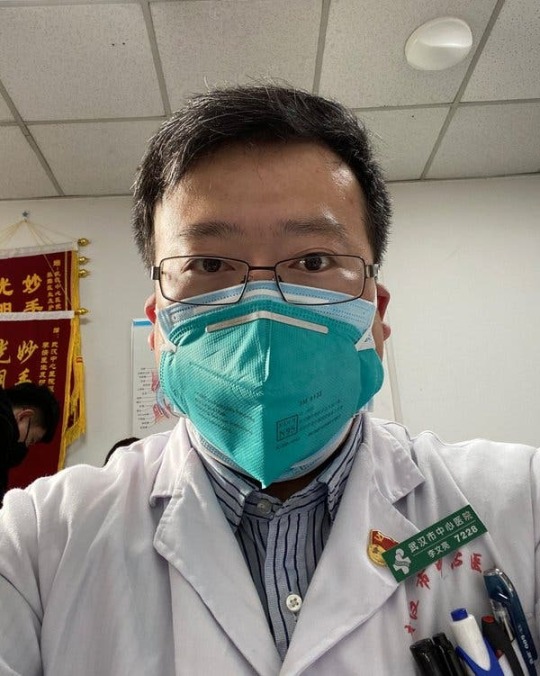
Dr. Li Wenliang Dr. Li’s death came after a night of speculation about his fate, including an outpouring of online grief in China prompted by premature reports that he had died. The confirmation of his death unleashed an even greater upsurge of emotion. Many comments under the hospital’s announcement accused the authorities of having sought to prolong Dr. Li’s life until deep in the night. “We will not forgot the doctor who spoke up about an illness that was called rumor,” said one commenter. “What else can we do? The only thing is not to forget.” Dr. Li had been a relatively obscure ophthalmologist in Wuhan, the capital of Hubei Province where the coronavirus epidemic took hold. But in recent weeks, he became a powerful icon for Chinese people angry that a viral outbreak had swelled unchecked into a full-blown crisis, and that the doctor who had tried to ring the alarm was initially punished.
Updated Feb. 5, 2020
Where has the virus spread?
You can track its movement with this map.
How is the United States being affected?
There have been at least a dozen cases. American citizens and permanent residents who fly to the United States from China are now subject to a two-week quarantine.
What if I’m traveling?
Several countries, including the United States, have discouraged travel to China, and several airlines have canceled flights. Many travelers have been left in limbo while looking to change or cancel bookings.
How do I keep myself and others safe?
Washing your hands is the most important thing you can do.
His death poses a singularly delicate issue for the Chinese government. Even as officials have battled the epidemic, they have also tried to stifle widespread criticism that they mismanaged their response to the initial outbreak in Wuhan, a city of 11 million. In recent days, China has stepped up censorship after a rush of online criticism and investigative reports by emboldened Chinese journalists who have exposed missteps by officials who underestimated and underplayed the threat of the coronavirus. Soon after Dr. Li’s death was announced, the Hubei Province Health Commission issued a brief message offering condolences, and so did the health authorities of the city of Wuhan. Global Times, a reliably pro-government tabloid, also mourned the death, while also urging readers to stay united with the government’s fight against the epidemic. “That Li Wenliang could not escape having his life snatched away shows that this is an arduous and complex battle,” an online article in the Global Times said. “At this critical juncture, all of us must be united.” The New York Times wrote about Dr. Li on Feb. 1, documenting his efforts to alert colleagues about an alarming cluster of illnesses that resembled Severe Acute Respiratory Syndrome, or SARS, an earlier coronavirus that ravaged China nearly two decades ago. The article also reported Dr. Li’s middle-of-the-night summons by unhappy health officials. “If the officials had disclosed information about the epidemic earlier,” Dr. Li told The Times. “I think it would have been a lot better. There should be more openness and transparency.” Early reports of Dr. Li’s death, before the hospital said he was still alive, set off an outpouring of messages on the Chinese internet. The messages lionized him as a hero who stood up to officials trying to play down a medical threat that came to engulf Wuhan, spill across China and ignite an international health crisis. After the hospital said doctors were still trying to save Dr. Li, people began posting comments of support. The doctor has one child, and he and his wife are expecting a second in the summer. “Not sleeping!!! Waiting online for a miracle,” said one commenter under the hospital’s statement on Weibo. “We don’t need to sleep tonight, but Li Wenliang must rise.” Dr. Li’s death appeared unlikely to inspire protests in Wuhan, which has been under lockdown for just over two weeks in an unprecedented effort to extinguish the epidemic. In Wuhan and other heavily restricted areas of Hubei, residents mostly stay inside their and avoid socializing for fear of catching the virus. Much of the rest of China is also under tight restrictions that make mass displays of mourning unlikely. In early January, Dr. Li was questioned by hospital officials and the police after he warned a circle of medical school classmates about a viral outbreak that he said appeared similar to SARS. The police forced him to sign a statement denouncing his warning as an unfounded and illegal rumor. Dr. Li was soon vindicated as more and more Wuhan residents fell ill with fever and pneumonia symptoms. They eventually grew to over 10,000 — and Dr. Li joined their number after contracting the virus from a patient he was treating for glaucoma. He had not been wearing special protective gear. “I think a healthy society should not have just one voice,” he recently told Caixin, a Chinese magazine that has reported aggressively on the epidemic. In recent interviews, Dr. Li had sounded hopeful about overcoming the illness and going back to work. “After I recover, I still want to return to the front line,” he told The Southern Metropolis Daily, a Chinese newspaper. “The epidemic is still spreading, and I don’t want to be a deserter.” Additional reporting by Vivian Wang in New York. Elsie Chen contributed research from Wuhan. Li Yuan and Cao Li contributed reporting from Hong Kong. Claire Fu, Wang Yiwei and Amber Wang contributed research from Beijing.
Read the full article
0 notes
Link
LVMH is exploring an acquisition of US jeweller Tiffany & Co. in what would be the biggest purchase ever by the French owner of Louis Vuitton, according to people familiar with the matter.
The French luxury group has approached Tiffany with a takeover proposal, though there’s no guarantee an agreement will be reached, said the people, who asked not to be identified because discussions are private. The US company’s shares have gained 22 per cent this year, valuing it at $12 billion. LVMH has risen 49 per cent, giving it a market capitalization of about $215 billion.
Representatives for Tiffany and LVMH declined to comment.
An acquisition would give LVMH an iconic 182-year-old US brand known for its robin’s egg blue boxes and its role as a favorite haunt of Holly Golightly in Truman Capote’s “Breakfast at Tiffany’s.” The French company already owns labels ranging from Givenchy haute couture to Sephora cosmetics stores, Hublot watches, Bulgari jewelry and Dom Perignon Champagne.
A takeover of Tiffany would be bigger than the $7 billion LVMH paid for the rest of Christian Dior in 2017. It would also be Chairman Bernard Arnault’s first major transaction since the purchase of luxury hotel chain Belmond last year, and potentially among the largest deals by a European company in 2019.
Beating Estimates
A purchase would further diversify the conglomerate, which has been riding a wave of luxury demand in China but faces risks including that country’s trade war with the US and the months-long anti-Beijing protests in Hong Kong. The company nonetheless beat analysts’ estimates with a 19 per cent sales gain for its key fashion and leather business in the most recent quarter.
After a difficult period when it lost track of consumer trends and suffered from a slump in US tourism, Tiffany has been bouncing back under Chief Executive Officer Alessandro Bogliolo, revamping its New York flagship store with major investments targeting younger shoppers.
Bogliolo, a former executive of Bulgari and jeans label Diesel who was hired by the US jeweler two years ago after hedge fund Jana Partners pushed for changes, has refreshed Tiffany’s marketing. The CEO said last month that he plans to open more stores in mainland China as a weak yuan deters the country’s consumers from spending overseas.
While global names dominate categories like high-end watches and handbags, consumers have been less focused on labels and more interested in smaller producers when it comes to buying diamond pendants or gold hoops. A study by consultancy McKinsey found that brands made up only 20 per cent of the jewelry market in 2014 -- a figure it expects to double by 2020.
LVMH is looking to sharpen its focus on the US, the company’s second-largest region by revenue behind Asia. Earlier this month, it opened a new Louis Vuitton factory in Texas in a ceremony that included President Donald Trump and his daughter Ivanka.
In jewellery, the company isn’t as dominant as in fashion, as Swiss rival Richemont SA owns Cartier as well as Van Cleef & Arpels. Adding Tiffany would expand the French giant’s potential market with somewhat more accessible offerings. While Bulgari makes a watch for almost 2 million euros ($2.2 million), Tiffany is better known for engagement rings that might cost a couple months’ pay.
LVMH’s nine-month figures show growth in the watches and jewelry division is slower than all the company’s other units, with fashion and leather goods leading the way.
Arnault is already Europe’s richest man. A deal would help keep him ahead of luxury rivals, including Richemont’s Johann Rupert and Gucci owner Kering’s Pinault family in the race to consolidate the luxury industry. With sales of more than $50 billion, LVMH dwarfs Tiffany, which has about $4.4 billion.
If an agreement is reached, it would mark the latest push by a French acquiror to tap growth in the US French technology company Dassault Systemes SE agreed in June to buy Medidata Solutions Inc., a software firm that analyzes clinical trials, for $5.7 billion. And last year, Axa SA acquired XL Group Ltd. for $15.3 billion, seeking to capture a bigger slice of the US property and casualty market.
0 notes